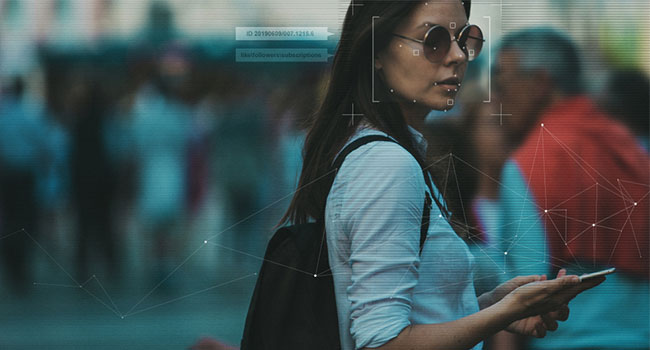
Facial Recognition App Used By Law Enforcement To Identify Suspects Faces Blowback
New Jersey police are banned from using Clearview AI’s app, and Twitter has demanded that the small company delete any photos collected from its website.
- By Haley Samsel
- Jan 28, 2020
An explosive investigation by The New York Times into a massive facial recognition database run by Clearview AI has led to significant fallout for the company, which has licensed its app to more than 600 law enforcement agencies across the U.S. as well as some private companies.
Clearview claims to maintain a database of more than three billion photos scraped from social media sites like Facebook, Twitter, YouTube and Venmo. Through the app, law enforcement agencies are able to upload photographs of surveillance footage and try to find a match from the database, which contains photographs not included in typical databases of mugshots or driver’s license images.
Federal and state law enforcement officers told the Times that it had used Clearview to solve shoplifting cases, credit card fraud and child sexual exploitation cases. Offering free trials to departments and discounted license fees, Clearview was able to build a loyal following among officers who used it and called it a powerful tool to quickly identify suspects.
“With Clearview, you can use photos that aren’t perfect,” Detective Sgt. Nick Ferrara of Gainesville, Fla. told the Times. “A person can be wearing a hat or glasses, or it can be a profile shot or partial view of their face.”
Read More: Facial Recognition Database Facing Potential Legal Action For Using Photos, Many of Children, Without Permission
But one key concern of the app’s critics are that law enforcement agencies are uploading sensitive investigation images to a company server whose “ability to protect its data is untested,” according to the Times report. The app’s accuracy is also under scrutiny by senators because it has not been tested by an independent party like the National Institute of Standards and Technology (NIST) which has evaluated facial recognition algorithms (and found serious issues with its accuracy for people of color).
Kashmir Hill, the Times reporter who conducted the investigation, also found that the company began reaching out to law enforcement officers after they had searched her face in the Clearview AI database at her request. Hill reported that the company has the ability to track people who gain the attention of law enforcement and manipulate the results that officers see -- for instance, officers saw no matches when searching Hill’s face.
In the wake of the report, Twitter sent a letter to Clearview AI stating hat the company must stop collecting photos from Twitter and delete any data previously collected from its site. The New Jersey attorney general, Gurbir S. Grewal, banned New Jersey police from using the software to identify suspects and sent a cease-and-desist letter to Clearview asking that they take down a video including Grewal’s name that the company was using to promote its product.
“I’m not categorically opposed to using any of these types of tools or technologies that make it easier for us to solve crimes, and to catch child predators or other dangerous criminals,” Grewal told the Times. “But we need to have a full understanding of what is happening here and ensure there are appropriate safeguards.”
The app is not publicly available, and the company’s founder is reluctant to do so, knowing the potential for abuse. Clearview is currently facing questions from Sen. Ed Markey (D-Mass.), who sent a list of 14 questions concerning the technology’s accuracy, the company’s plans to use it with augmented reality glasses, and cybersecurity practices used to keep the sensitive data safe.
Since there is no federal privacy law on the books, Clearview AI’s legality is not in question, and experts like Al Gidari, a Stanford privacy professor, say that there will be many more similar companies.
“There is no monopoly on math,” Gidari told the Times. “Absent a very strong federal privacy law, we’re all screwed.”
About the Author
Haley Samsel is an Associate Content Editor for the Infrastructure Solutions Group at 1105 Media.